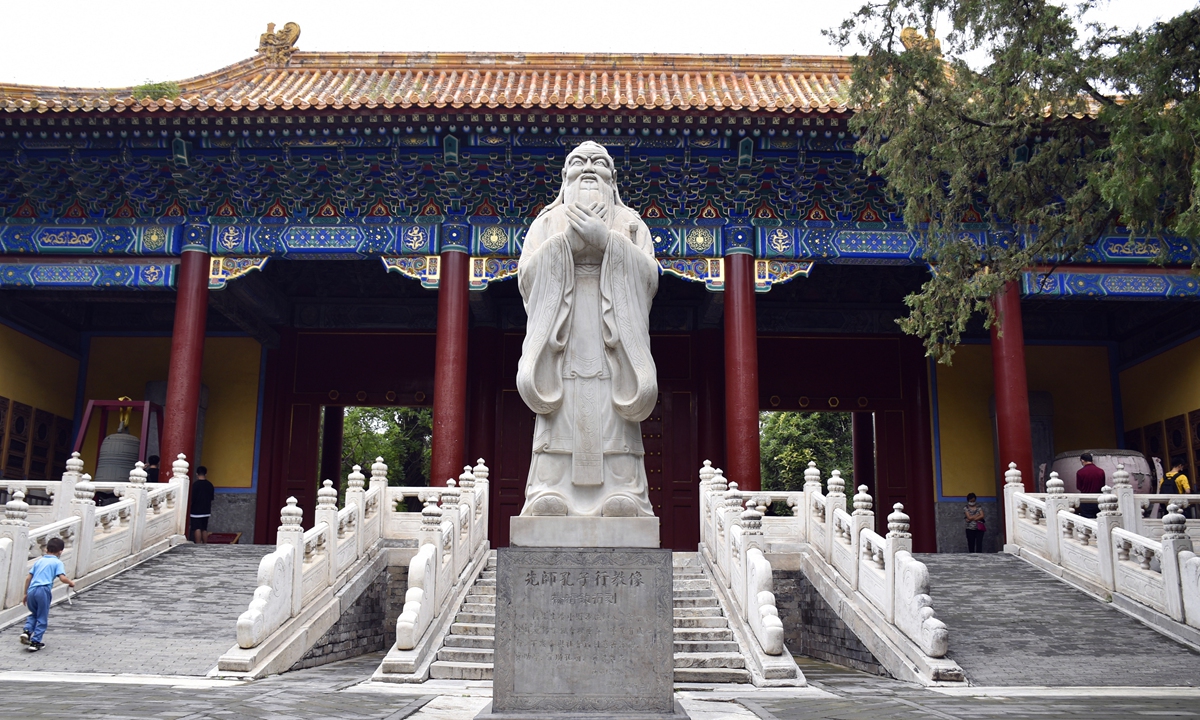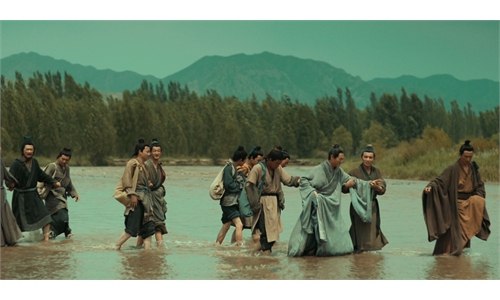ARTS / CULTURE & LEISURE
Confucius Temple bridge for cultural communication, not stronghold of aggression: expert weighs in on Japan Supreme Court verdict

The Confucius Temple in Beijing Photo: IC
The seven-year trial about whether the Confucius Temple in Okinawa violates the Japanese Constitution finally reached an end on Wednesday. Two days later, the lawyer of one of the plaintiffs who won the lawsuit thanked his supporters on Twitter, saying that he will continue to fight to demolish the temple and called for efforts to wipe out all "Chinese invasion strongholds" in Okinawa.
The lawsuit stemmed from a controversy between some local residents in Okinawa and the local government concerning whether the Confucius Temple should be considered a religious venue.
Some right-wing residents as well as Japanese media outlets want to use the case to remove the more than 300-year-old Confucius Temple from the prefecture.
According to the Japanese Constitution, the government cannot provide funds or give privileges to religious organizations or venues. In 2013, the mayor of Okinawa classified the Confucius Temple as a tourist attraction and a place for learning, so he exempted it from annual land rent.
The order was opposed by some residents, including a 93-year-old woman, who said the temple should be considered a religious venue and that Confucius thought is a religion instead of a philosophy.
They group sued the local government to suspend the order and have the temple fined.
In its final judgment on Wednesday, the Supreme Court of Japan avoided judging whether Confucianism is a religion, but said that the annual Confucius festival held at the temple is a religious activity with strong religious features and therefore the venue should not be exempt from land rent.
While the court judged that the government's decision was unconstitutional and ruled in the favor of the citizen group, it has not yet announced any penalties.
According to their public statements, the first plaintiff and her lawyer had an exclusionary attitude toward Confucianism and expressed support for the US military in Japan and even acted in a film to promote the Yasukuni Shrine, a controversial Shinto shrine commemorating Japan's war dead, including those who served during Japan's invasion of China during World War II.
Zhang Yiwu, a professor at Peking University, opposed the movement to politicize the history of the Confucius Temple.
"The temple has high historical and cultural value and has nothing to do with politics. It should not be expelled from Okinawa," Zhang told the Global Times on Sunday.
He noted that Confucianism not only influenced China but also has taken root in East Asian culture and has been developed in line with the conditions of various nations, so determining if it can be considered a religion in different countries is difficult; however, he noted that the people who made the Confucius Temple a political issue "have an ulterior motive."
In Japan, Confucianism was introduced during the third century, much earlier than Buddhism, which was introduced during the sixth century, and most Confucian temples were built together with Confucian schools.
"If they want to kick Confucianism out, why not expel Buddhism together? It is a totally exotic religion from India," some Chinese netizens commented on social media.
Some Japanese media also expressed disapproval of the results of the case. The Tokyo Web said in an editorial on Thursday that Chinese classics including Confucianism have been the subject of learning in Japan since ancient times and that there are many other Confucius Temples in other places in Japan, which might be affected by the judgment.
It would be a shame if it would lead to the atrophy of cultural activities rooted in Japanese history, the report said.


